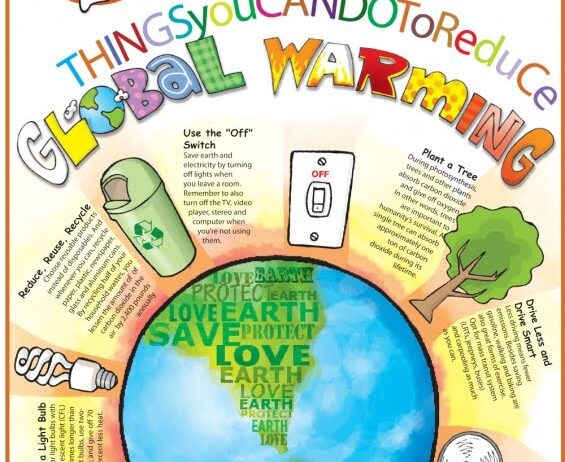Can turning off extension cords help stop global warming? This playful question may seem trivial at first glance, but it beckons a deeper exploration into the nexus between individual actions and global repercussions. In a world grappling with the escalating effects of climate change, every small gesture can accumulate into a substantial impact. This article delves into the significance of turning off extension cords, examining its roles in energy conservation, the ecological footprint of electricity generation, and ultimately, its contribution to mitigating global warming.
The practice of leaving extension cords plugged in and connected to devices is commonplace. Often viewed as a benign action, it goes unnoticed in the hustle and bustle of daily life. However, electronic devices continue to consume power even in standby mode. This phenomenon, commonly known as “phantom load” or “vampire energy,” can contribute significantly to unnecessary energy expenditure.
When you consider that millions of households across the globe engage in this behavior, the collective energy wasted becomes staggering. Estimates suggest that standby power accounts for approximately 5 to 10 percent of total household energy use. This wasted energy translates into higher utility bills for consumers and exacerbates the environmental impact from energy production. More than mere inconvenience, this practice carries weighty implications for global warming.
Electricity generation remains a significant contributor to greenhouse gas emissions. In many regions, power plants rely heavily on fossil fuels like coal, natural gas, and oil. The combustion of these fuels releases carbon dioxide (CO2) and other harmful pollutants into the atmosphere. As the population continues to grow, the demand for electricity intensifies, leading to increased emissions from power plants. By minimizing energy consumption—such as through turning off extension cords—we can directly influence the power demand, and consequently, the rate at which greenhouse gases are emitted into the atmosphere.
Let’s embark on a thought experiment. If every household in the United States turned off and unplugged unnecessary extension cords and devices, what would be the result? According to the U.S. Energy Information Administration, the average American household consumed approximately 877 kWh per month as of recent data. If just 10 percent of this consumption could be mitigated through responsible energy practices, the resultant savings could amount to a staggering 10 million metric tons of CO2 emissions annually. This figure signifies more than just environmental responsibility; it indicates the profound impact that individual actions can radiate when coupled with widespread community participation.
Moreover, the act of turning off extension cords and devices could serve as a catalyst for more significant energy-saving behaviors. It promotes a culture of awareness regarding energy consumption, driving individuals and families to consider other measures to reduce their carbon footprints. This includes utilizing energy-efficient appliances, adopting renewable energy sources such as solar panels, and embracing sustainable living practices. As consumer energy habits change, companies are compelled to adapt to this emerging consciousness. This shift can ultimately influence the market forces driving energy production, nudging it toward cleaner, sustainable alternatives that are less damaging to the environment.
Imagine a community challenge where neighbors encourage one another to reduce phantom load by turning off their extension cords. A friendly competition could bolster collective engagement and raise awareness about energy waste, while simultaneously fostering camaraderie among residents. By creating a collective narrative around energy conservation and emphasizing the imperative of addressing climate change, communities can make a formidable impact in the global fight against warming.
Importantly, turning off the extension cords is not merely about saving energy; it’s about cultivating a mindset that values sustainability. This initiative underscores the significance of being conscientious about consumption— a crucial element in combating climate change. If individuals possess a keen understanding of how their choices contribute to environmental degradation, they may be more inclined to take additional steps toward sustainable living.
Let’s delve deeper into this notion. Each act of conservation, however small, can create ripples through our interconnected world. When energy use is minimized, not only are emissions reduced, but it also has a downstream effect on natural habitats. Less demand for energy leads to lesser extraction of fossil fuels, leading to diminished environmental disruptions, habitat loss, and pollution. Climate change, inextricably linked to biodiversity loss, can be counteracted effectively through conscious energy consumption.
Critically, the importance of turning off extension cords also speaks to a larger narrative about responsibility, ethics, and sustainability. Individuals must recognize that they possess agency in the issue of climate change. By fostering practices that contribute to a healthier planet, we cultivate a narrative of empowerment. We become stewards of the environment, acknowledging that our actions—regardless of scale—possess the potential to catalyze change.
As we bring this discourse full circle, it is essential to reiterate the underlying significance of simple actions such as turning off extension cords. They embody a larger ethos of mindful living, which, when adopted collectively, can lead to considerable changes in energy consumption patterns that can play a pivotal role in the quest to mitigate thermal escalation and its dire consequences. In essence, yes, turning off extension cords can indeed play a part in the grand challenge to stop global warming. Through awareness, collective effort, and commitment to sustainability, we can transition from mere bystanders to active participants in the fight against climate change.
Ultimately, the question transcends the act of turning off an extension cord; it beckons the overarching query—can we, as a society, recalibrate our relationship with energy and the planet? The answer lies not only in our hands but in the collective consciousness of generations to come.






